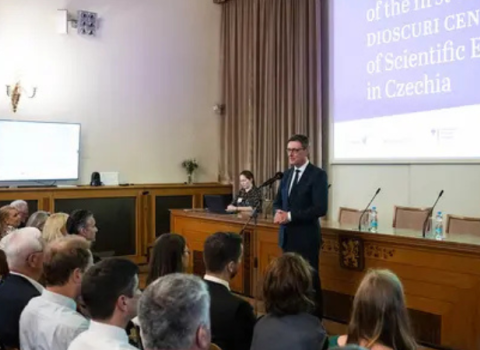In comparison with elsewhere in Europe, Germany has performed well in terms of nurturing the development of clean technology start-ups. A large part of this success can be attributed to its early lead in establishing renewable energy feed-in tariffs, which enabled the country’s solar and wind industries to steal a march on competitors.
On the back of feed-in tariffs - which allow for preferential pricing of electricity from renewable sources – Germany was this week named as the global leader in solar photovoltaics (PV) for the second year in a row, installing over 6,500 MW of new installations in 2010. This added to the existing 9,800 MW of PV systems, according to figures released by the European Photovoltaic Industry Association.
The extent of Germany’s lead in cleantech overall is underlined by the fact that 2010 saw the highest volume of added PV to date in Europe and in the world, with PV showing the strongest growth among all renewable energy technologies in Europe.
Germany’s leading seed investor, High-Tech Gründerfonds has played a key role in fostering the development of the cleantech sector. Since its establishment, the €272 million fund, made up of contributions from the German government and the KFW Bank, alongside the six German companies BASF, Daimler, Siemens, Deutsche Telekom, Bosch and Zeiss, has closed 220 deals and raised around €300 million in follow-on investments for its portfolio companies.
“High-Tech Gründerfonds makes every second high-tech start-up seed deal in Germany. [The same] is probably true for the share of cleantech start-ups in [its] portfolio,” says Jan Michael Hess, Founder of Ecosummit and CEO of Mobile Economy GmbH.
Other strengths that have contributed to the emergence of a strong cleantech sector include a pool of mechanical, electrical and chemical engineering talent and a vibrant tradition of industrial and non-university research in organisations such as the Fraunhofer Institute and the German Aerospace Centre.
Running Out of Steam
But even though the German economy weathered the storms of the recent global financial crisis better than many others, there are growing signs that the country’s cleantech sector faces an uphill battle to maintain its dominant position. Compared to historic levels, the amount of new money being raised in Germany by cleantech venture capital funds is rather low – less than €100 million in 2010 – and it looks like many big investors are holding back.
“We clearly need more money going into the smart green economy,” says Hess. “German venture capitalists currently trying to raise new funds in the German market have difficulties and they tell me that it is not due to a lack of deal flow quality, but rather due to uncertainty of exit opportunities via trade sale or initial public offering in the mid- to long-term. That has to change,” he adds.
Moreover, other nations, and in particular those in Asia, are catching up, and Germany looks set to face much stiffer competition in the clean technology sector. As a result, it will need to work harder to maintain its leading position and take advantage of global markets.
“Those German ‘stars’ which have not figured out their Asia strategy yet will be fallen angels soon,” says Joerg Sperling, a Partner at the German-based private equity fund manager WHEB Partners.
Lessons for elsewhere in Europe
So, what are the main lessons that other European countries might learn from the German experience? According to Hess, an important point, at least for the renewable energy sector, is to be aware of the risk of an over-reliance on feed-in tariffs.
“[In Germany], the trap has been a fairly friendly feed in tariff regime, meaning there has not been enough pressure to drive down cost. I am very sceptical, for example, [that] Germany can maintain its lead in solar. Many players missed the boat [with] regard to moving to Asia-based manufacturing,” he says.
Those European countries seeking to develop their clean technology sector would also be well advised to focus on core areas of competence. “I would say the key lessons learned are that countries really should build on their strengths. It’s very difficult to push new industries from scratch without having the right ecosystem and in particular the engineering talent pool in place,” says Sperling.
Cleantech start-ups must foster a knowledge base
As Hess notes, “Germany continues to be very strong in its key markets: automotive, machinery and electromechanical [products], where we find a lot of ‘green’ innovations and true global market leaders”
In view of the fact that the early growth of many cleantech start-ups is primarily knowledge-based, it is also crucial to improve the ability of new companies to access cutting-edge research and development.
One promising approach is for companies to locate at least some of their research operations on university campuses, a strategy adopted by Novaled and Heliatek – two companies involved in Germany’s burgeoning organic photovoltaics industry – which have both established ‘know-how’ foundations in the University of Dresden.
“Cleantech start-ups need a lot of know-how, which is available at universities and independent research centres,” says Hess. “We [also] need more entrepreneurs and investors to commercialise this know-how. For this we need to raise more funds. Although the High-Tech Gründerfonds is a good role model it is not enough,” he adds.
European cleantech companies face a number of significant challenges over the next few years, not least those posed by the widespread scaling back of feed-in tariffs and the rise of international competition. Given this, the strategies adopted by the traditionally strong German cleantech sector will be of continued interest.





 A unique international forum for public research organisations and companies to connect their external engagement with strategic interests around their R&D system.
A unique international forum for public research organisations and companies to connect their external engagement with strategic interests around their R&D system.